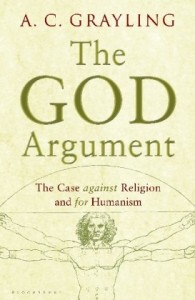By Seth Godin
“Our world is filled with factories. Factories that make widgets and insurance and Web sites, factories that make movies and take care of sick people and answer the telephone. These factories need workers.
“If you learn how to be one of these workers, if you pay attention in school, follow instructions, show up on time, and try hard, we will take care of you. You won’t have to be brilliant or creative or take big risks.
“We will pay you a lot of money, give you health insurance, and offer you job security. We will cherish you, or at the very least, take care of you.”
“It was always easier for management to replace labor than it was for labor to find a new factory. Today, the means of production = a laptop computer with Internet connectivity. Three thousand dollars buy a work an entire factory.”
“If you want a job where it’s okay to follow the rules, don’t be surprised if you get a job where following the rules is all you get to do. If you want a job where the people who work for you do exactly what they’re told, don’t be surprised if your boss expects precisely the same thing from you.
“We’ve bought into a model that taught us to embrace the system, to spend for pleasure, and to separate ourselves from our work.”
“It was always easier for management to replace labor than it was for labor to find a new factory. Today, the means of production = a laptop computer with Internet connectivity. Three thousand dollars buys a work an entire factory. pg 24
“If you want a job where the people who work for you do exactly what they’re told, don’t be surprised if your boss expects precisely the same thing from you. pg 29
“We’ve bought into a model that taught us to embrace the system, to spend for pleasure, and to separate ourselves from our work. pg 39
“A factory is “an organization that has figure it out, a place where people go to do what they’re told and earn a paycheck.” pg 40
“The launch of universal (public and free) education was a profound change in the way our society works, and it was a deliberate attempt to transform our culture. And it worked. We trained millions of factory workers. pg 41
“The essential thing measured by school is whether or not you are good at school. pg 47
“The law of linchpin leverage: The More value you create in your job, the fewer clock minutes of labor you actually spend creating that value. pg 51
“Finding security in mediocrity is an exhausting process. You’re always looking over your shoulder, always trying to be a little less mediocre than the guy next to you. pg 54
“If you can’t be remarkable, perhaps you should consider doing nothing until you can. pg 70
“If you’re remarkable, amazing, or just plain spectacular, you probably shouldn’t have a resume at all. A resume gives the employer everything she needs to reject you. pg 71
“Projects are the new resumes. pg 73
“You are not your resume. You are your work. pg 74
“It’s okay to have someone you work for, someone who watches over you, someone who pays you. But the moment you treat that person like a boss, like someone in charge of your movements and your output, you are a cog, not an artist. pg 95
“The future of your organization depends on motivated human beings selflessly contributing unasked-for gifts of emotional labor. And worse yet, the harder you work to quantify and manipulate this process,the more poorly it will work. The easier it is to quantify, the less it’s worth. pg 96
The Job Versus Your Art
“The job is what you do when you are told what to do. The job is showing up at the factory, following instructions, meeting spec, and being managed. Someone can always do your job a little better or faster or cheaper than you can. The job might be difficult, it might require skill, but it’s a job.
“Your art is what you do when no one can tell you exactly how to do it. Your art is the act of taking personal responsibility, challenging the status quo, and changing people. I call the process of doing your art “the work.” It’s possible to have a job and do the work, too. In fact that’s how you become a linchpin. The job is not the work. pg 97
“Most believe that what they do is so intrinsically good and that they should be compensated to do it even if it doesn’t produce revenue.” — Media economist Robert Picard pg 120
“Our economy has reached a logical conclusion. The race to make average stuff for average people in huge quantities is almost over. Improvements in price are now so small they’re hardly worth making. pg 123
It’s not an accident that successful people read more books. pg 126
There are plenty of bosses who fear the idea of indispensable employees and would instead encourage you to focus on teamwork. “Teamwork” is the word bosses and coaches and teachers use when they actually mean, “Do what I say.” pg 153
For the last five hundred years, the best way to succeed has been to treat everyone as a stranger you could do business with. pg 157
If you are working only for the person you report to according to the org chart, you may be sacrificing your future. pg 193
People aren’t going to follow you because you order them to. Linchpins don’t need authority. It’s not part of the deal. Authority matters only in the factory, not in your world. pg 201
For many of us, the happiest future is one that’s precisely like the past, except a little better. pg 203

